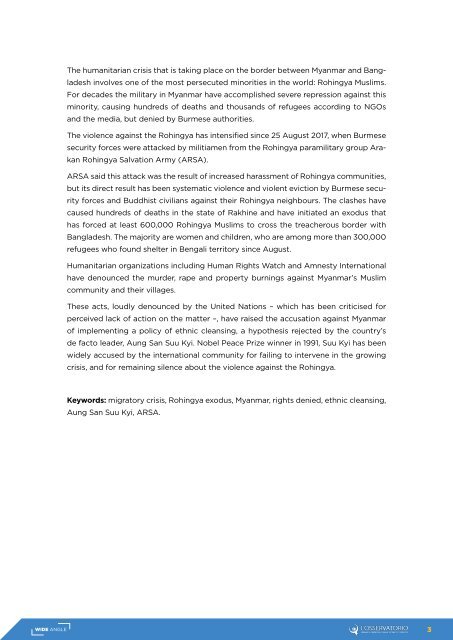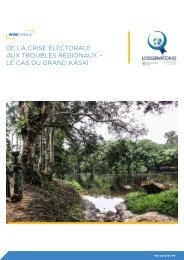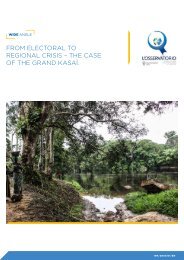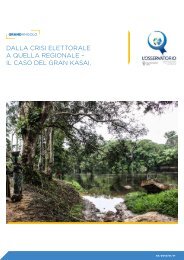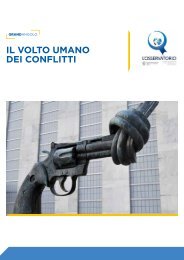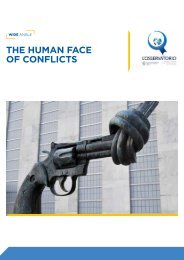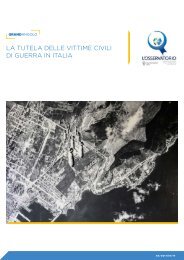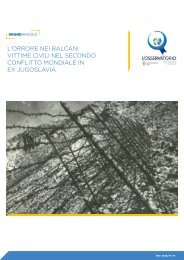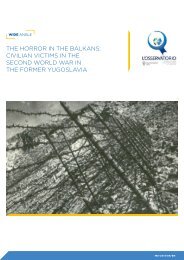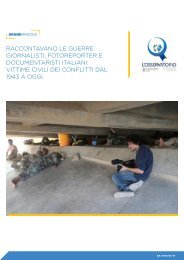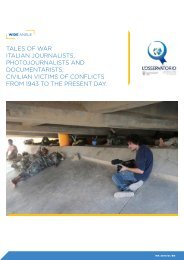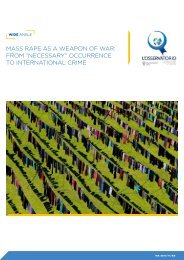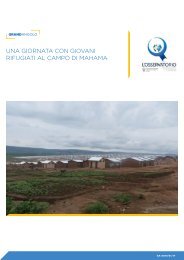The drama of the Rohingya
Create successful ePaper yourself
Turn your PDF publications into a flip-book with our unique Google optimized e-Paper software.
<strong>The</strong> humanitarian crisis that is taking place on <strong>the</strong> border between Myanmar and Bangladesh<br />
involves one <strong>of</strong> <strong>the</strong> most persecuted minorities in <strong>the</strong> world: <strong>Rohingya</strong> Muslims.<br />
For decades <strong>the</strong> military in Myanmar have accomplished severe repression against this<br />
minority, causing hundreds <strong>of</strong> deaths and thousands <strong>of</strong> refugees according to NGOs<br />
and <strong>the</strong> media, but denied by Burmese authorities.<br />
<strong>The</strong> violence against <strong>the</strong> <strong>Rohingya</strong> has intensified since 25 August 2017, when Burmese<br />
security forces were attacked by militiamen from <strong>the</strong> <strong>Rohingya</strong> paramilitary group Arakan<br />
<strong>Rohingya</strong> Salvation Army (ARSA).<br />
ARSA said this attack was <strong>the</strong> result <strong>of</strong> increased harassment <strong>of</strong> <strong>Rohingya</strong> communities,<br />
but its direct result has been systematic violence and violent eviction by Burmese security<br />
forces and Buddhist civilians against <strong>the</strong>ir <strong>Rohingya</strong> neighbours. <strong>The</strong> clashes have<br />
caused hundreds <strong>of</strong> deaths in <strong>the</strong> state <strong>of</strong> Rakhine and have initiated an exodus that<br />
has forced at least 600,000 <strong>Rohingya</strong> Muslims to cross <strong>the</strong> treacherous border with<br />
Bangladesh. <strong>The</strong> majority are women and children, who are among more than 300,000<br />
refugees who found shelter in Bengali territory since August.<br />
Humanitarian organizations including Human Rights Watch and Amnesty International<br />
have denounced <strong>the</strong> murder, rape and property burnings against Myanmar’s Muslim<br />
community and <strong>the</strong>ir villages.<br />
<strong>The</strong>se acts, loudly denounced by <strong>the</strong> United Nations – which has been criticised for<br />
perceived lack <strong>of</strong> action on <strong>the</strong> matter –, have raised <strong>the</strong> accusation against Myanmar<br />
<strong>of</strong> implementing a policy <strong>of</strong> ethnic cleansing, a hypo<strong>the</strong>sis rejected by <strong>the</strong> country’s<br />
de facto leader, Aung San Suu Kyi. Nobel Peace Prize winner in 1991, Suu Kyi has been<br />
widely accused by <strong>the</strong> international community for failing to intervene in <strong>the</strong> growing<br />
crisis, and for remaining silence about <strong>the</strong> violence against <strong>the</strong> <strong>Rohingya</strong>.<br />
Keywords: migratory crisis, <strong>Rohingya</strong> exodus, Myanmar, rights denied, ethnic cleansing,<br />
Aung San Suu Kyi, ARSA.<br />
3


